MICHIGAN STONE
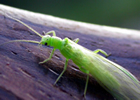
 Stoneflies are important biological indicator species. Their presence indicates that sufficient oxygen is present to allow for trout habitation and that the watershed is in good health. They place 3rd on the list of important trout foods, only being surpassed by mayflies and caddis flies.
Stoneflies are important biological indicator species. Their presence indicates that sufficient oxygen is present to allow for trout habitation and that the watershed is in good health. They place 3rd on the list of important trout foods, only being surpassed by mayflies and caddis flies.
One species or another are usually present on the waters from early spring until late fall. It’s a smart bet to carry some standard patterns with you at all times. I’d like to share with you today a standard pattern I always carry.
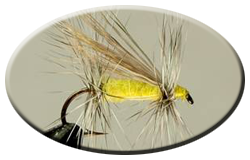
Materials:
- Hook: Mustad #94833 Size: 14-20
- Thread: Yellow, 6/0
- Body: Yellow Rabbit Fur Dubbing (or synthetic)
- Wing: Deer Hair
- Hackle: Grizzly, tied fore and aft
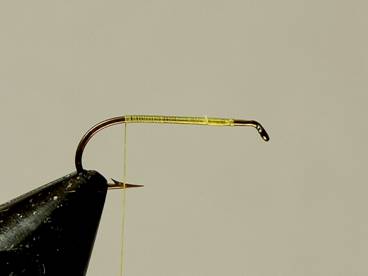 I prefer the Mustad fine wire hooks but you may substitute your favorite brand.
I prefer the Mustad fine wire hooks but you may substitute your favorite brand.
Wrap in a good base of thread. Thread color may be changed to match the body dubbing.
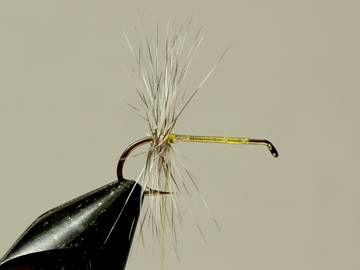 Tie in your aft hackle using standard techniques. The glossy side of the hackle should be facing the eye of the hook.
Tie in your aft hackle using standard techniques. The glossy side of the hackle should be facing the eye of the hook.
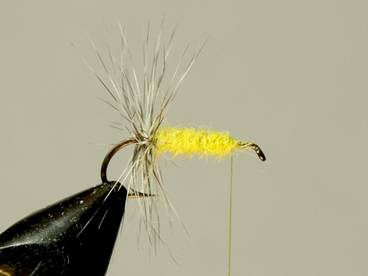 Wax your thread and select your dubbing. If tying for the Little Yellow Stone adjust your shade of yellow to match the insects on the river (dull amber to a delicate yellow). If tying for the Little Green Stone the dubbing will be anywhere from olive to bright green. You’ll also want to change your thread color and adjust you hackle color to a yellowish-olive.
Wax your thread and select your dubbing. If tying for the Little Yellow Stone adjust your shade of yellow to match the insects on the river (dull amber to a delicate yellow). If tying for the Little Green Stone the dubbing will be anywhere from olive to bright green. You’ll also want to change your thread color and adjust you hackle color to a yellowish-olive.
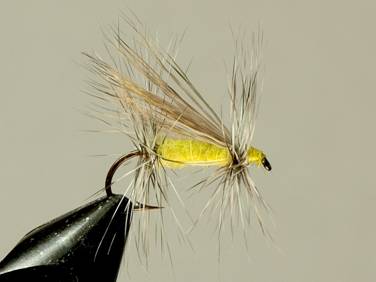 Select enough deer hair to equal the diameter of a kitchen match. Tie in the wing flat over the body, extending slightly beyond the bend of the hook.
Select enough deer hair to equal the diameter of a kitchen match. Tie in the wing flat over the body, extending slightly beyond the bend of the hook.
Tie in your fore hackle. Wrap the head and add cement all around.
This pattern was originated by the late Paul H. Young (1890-1960), celebrated fly tier and rod builder from Detroit. It was developed in the 1930’s. This high floating fly is still popular throughout the mid-west. This pattern may also be fished wet.
See you on the water…..
Tom Deschaine
For additional information on Michigan Dry Flies
go to: www.michigandryflies.net
For more great info, check out:
Beginning Fly Tying | Intermediate Fly Tying | Advanced Fly Tying.
